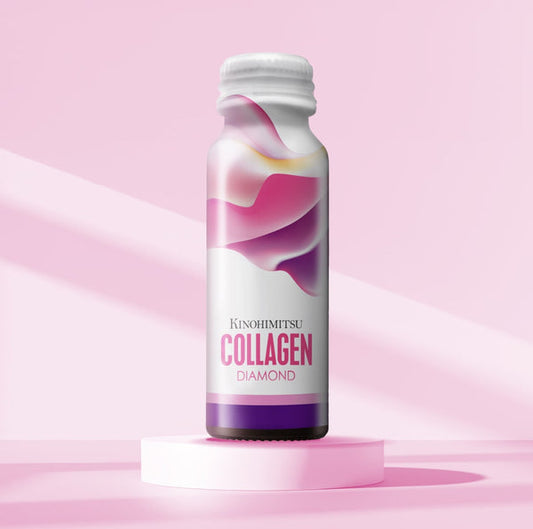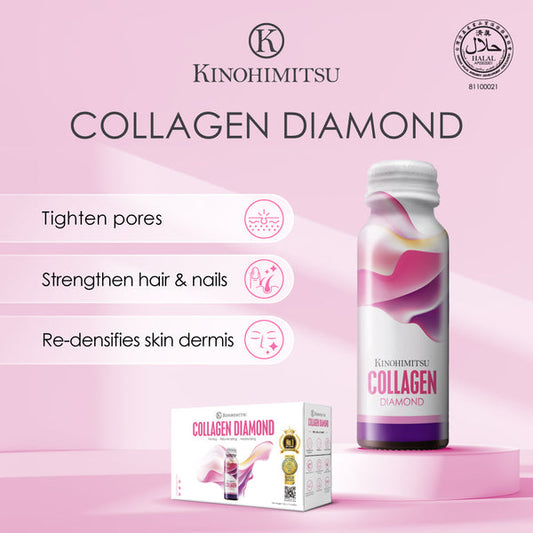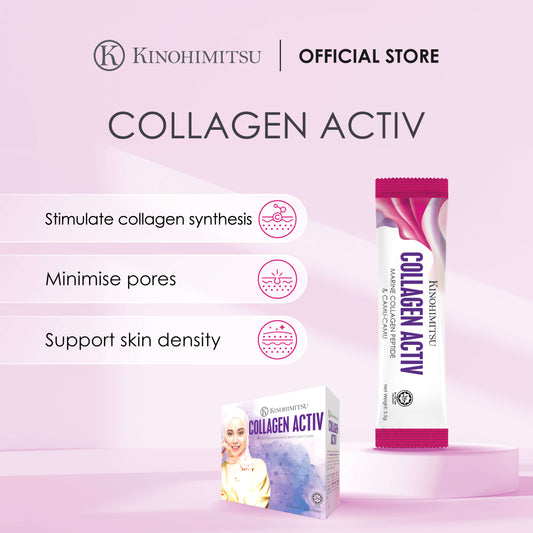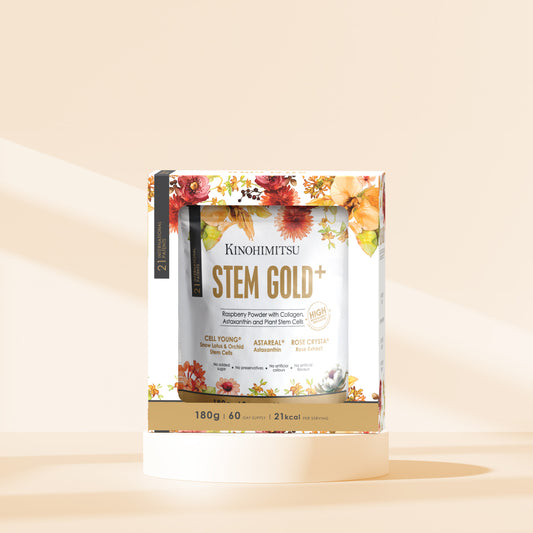
Ultimate Guide to Whitening Skin Care Naturally

Whitening skin care has become a popular objective for many seeking a brighter, more even complexion. Did you know that the global market for skincare products aimed at skin brightening is projected to soar, highlighting the increasing demand for effective solutions? With so many products available, it can be challenging to distinguish between effective treatments and mere marketing hype. This guide dives into the world of whitening skin care, focusing on safe and natural remedies that promote a luminous glow without compromising skin health. From understanding the science behind skin whitening to exploring the benefits of holistic approaches, you'll find actionable insights to enhance your skincare journey.
Understanding Whitening Skin Care
What is Whitening Skin Care?
Whitening skin care encompasses a range of products and treatments designed to lighten skin tone and reduce pigmentation. It aims to provide a healthier, more radiant complexion by targeting conditions such as dark spots, uneven skin tone, and discoloration.
The Science Behind Skin Whitening
The primary goal of whitening skin care is to inhibit melanin production in the skin. Melanin is the pigment responsible for skin color, and excess production can lead to darkening. Natural ingredients often work by:
- Reducing melanin synthesis
- Exfoliating the upper layers of the skin
- Enhancing skin brightness
The Importance of Natural Ingredients
Why Choose Natural Over Chemical?
Natural ingredients are gaining popularity in whitening skin care due to their gentle and safe nature. Unlike harsh chemicals, natural components are less likely to cause irritation or adverse reactions. Additionally, they often provide additional skin benefits, such as hydration and nourishment.
Common Natural Ingredients for Whitening
Several natural ingredients are effective in whitening skin care. Some of these include:
- Kojic Acid: Derived from fungi, it helps reduce pigmentation.
- Vitamin C: An antioxidant that brightens skin and evens out tone.
- Licorice Extract: Known for its ability to lighten dark spots.
- Niacinamide: A form of Vitamin B3 that brightens and enhances skin texture.
Effective Natural Whitening Skin Care Remedies
DIY Masks and Scrubs
Creating your own whitening skin care remedies can be both fun and effective. Here are a couple of easy recipes to try:
- Yogurt and Honey Mask: Mix plain yogurt with honey, apply to the face, and leave on for 20 minutes before rinsing for radiant skin.
- Turmeric and Lemon Scrub: Combine turmeric powder with lemon juice for a natural scrub that helps with pigmentation when used regularly.
Herbal Treatments
Incorporating herbal treatments into your routine can enhance the effects of your whitening skin care regimen. For example:
- Aloe Vera Benefits: Aloe vera not only hydrates but also contains aloin, which can lighten skin.
- Licorice Extract: This powerful herb targets dark spots, providing noticeable results.
For a more in-depth exploration of effective natural ingredients, visit The Body Shop.
Daily Skin Care Routine for Whitening
Morning Routine Essentials
Start your day with a consistent skin care routine that promotes whitening. Key steps include:
- Cleansing the skin with a gentle cleanser.
- Applying a toner to balance pH levels.
- Using a whitening serum enriched with natural ingredients.
- Moisturizing with sunscreen to protect against UV damage.
Nighttime Care Tips
At night, your skin replenishes itself, making it the perfect time for intensive care. Consider these steps:
- Thoroughly cleanse to remove impurities.
- Apply a richer whitening cream or overnight mask.
- Incorporate serums that work while you sleep to enhance brightness.
By following these guidelines in your whitening skin care routine, you can achieve a more luminous complexion naturally.
Lifestyle Choices to Enhance Whitening Skin Care
Importance of Hydration
Staying adequately hydrated is crucial for maintaining skin health. Water helps flush out toxins and keeps the skin plump and radiant. To enhance your whitening skin care results, aim to:
- Drink at least 8 glasses of water daily.
- Include hydrating foods in your diet, such as cucumbers and watermelon.
- Limit dehydrating beverages like coffee and alcohol.
What you eat greatly influences your skin's appearance. Incorporating specific nutrients can enhance the effectiveness of your whitening skin care regimen. Consider these dietary tips:
- Antioxidant-rich foods: Include berries, spinach, and nuts to combat oxidative stress.
- Vitamin C sources: Oranges, kiwi, and bell peppers help brighten skin.
- Omega-3 fatty acids: Found in fish and flaxseeds, these aid in maintaining skin suppleness.
Role of Sun Protection
Sun exposure can negate the results of your whitening skin care efforts by promoting pigmentation and dark spots. Protecting your skin from the sun is essential:
- Apply a broad-spectrum sunscreen with at least SPF 30 daily.
- Wear protective clothing, such as hats and long sleeves.
- Seek shade during peak sun hours, usually between 10 AM and 4 PM.
- By integrating these lifestyle choices into your daily routine, you can amplify the benefits of your whitening skin care products and achieve a healthier, more luminous complexion.
For additional tips on skin protection, you can visit Kinohimitsu.
Common Myths About Whitening Skin Care
Debunking Popular Misconceptions
Despite the popularity of whitening skin care, there are numerous myths that can mislead consumers. It’s essential to distinguish fact from fiction to ensure effective and safe use of these products. Here are some common misconceptions:
-
Myth 1: All whitening products are harmful.
Many natural whitening skin care products use gentle ingredients and do not contain harmful chemicals. It's important to read labels and choose products with safe, natural components. -
Myth 2: Whitening means bleach.
Whitening skin care does not equate to bleaching. The goal is to achieve a more even skin tone and reduce dark spots, not drastically change natural pigmentation. -
Myth 3: Results are instant.
Achieving a brighter complexion takes time and consistency. Most natural remedies and products require regular use over several weeks to show results.
Understanding Skin Tone vs. Skin Brightening
It's crucial to understand that whitening skin care aims for skin brightening rather than altering one's natural skin tone. Here's what each entails:
- Skin Brightening: Focuses on reducing dullness, hyperpigmentation, and uneven skin tone.
- Skin Whitening: Often refers to lightening skin tone significantly, which can be more controversial and potentially harmful.
By clearing up these misconceptions, individuals can make informed decisions regarding their whitening skin care routine and embrace safer, more effective practices.
For credible information related to skin care, visit Olay, which provides extensive resources on various skin care topics.
Choosing the Right Products
How to Read Labels for Whitening Skin Care
Navigating the world of whitening skin care can be daunting due to the sheer number of products available. Understanding how to read labels is crucial for making informed decisions. Look for the following:
- Active Ingredients: Select products with proven natural ingredients like vitamin C, niacinamide, and licorice extract.
- Absence of Harmful Chemicals: Avoid products containing harsh substances such as hydroquinone and mercury, which can be detrimental to skin health.
- Certifications and Endorsements: Seek products that are dermatologically tested or certified organic, ensuring a level of safety.
Recommended Natural Products to Consider
Many brands offer exceptional whitening skin care products that focus on natural ingredients. Here are a few recommended options:
- Kinohimitsu: Known for its beauty functional drinks, Kinohimitsu incorporates natural plant extracts that can support skin whitening.
- The Body Shop: Offers a range of products containing ethical, plant-based ingredients that promote skin health.
- Olay: A well-respected brand that provides a selection of moisturizing formulations with brightening effects derived from natural sources.
By choosing the right whitening skin care products, you can significantly enhance your skin’s luminosity and health while integrating safe, effective routines into your daily life.
For more extensive product options and reviews, check out Sephora.
Conclusion: Embracing a Holistic Approach to Skin Care
The Balance of Natural Ingredients and Skin Health
In the pursuit of achieving a brighter complexion, embracing a holistic approach to your whitening skin care routine is vital. This means not only focusing on topical applications but also prioritizing overall skin health. Natural ingredients play a crucial role, helping to minimize side effects and enhancing skin vitality. By combining external care with good internal nutrition, you create a synergistic effect on your skin.
Setting Realistic Expectations for Skin Whitening
It’s essential to adjust expectations when embarking on a whitening skin care journey. Here are some key points to keep in mind:
- Patience is Key: Results will not happen overnight. Consistent use of natural products over several weeks is necessary to see improvements.
- Individual Variation: Each person's skin responds differently; what works for one may not work for another. Tailor your approach based on your unique needs.
- Focus on Brightening Rather Than Whitening: Aim for an even-toned and radiant complexion rather than drastically lightening your skin tone.
By understanding and implementing these principles, you can successfully navigate the world of whitening skin care. Your journey towards luminous skin can be a rewarding experience that not only enhances your appearance but also boosts your confidence.
For more comprehensive guidance on skin health and care, consider visiting Neutrogena.
Effective Natural Whitening Skin Care Remedies
DIY Masks and Scrubs
Creating your own whitening skin care remedies at home can be both enjoyable and effective. Here are some easy DIY recipes that utilize natural ingredients:
Yogurt and Honey Mask:
1. Ingredients:
- 2 tablespoons of plain yogurt
- 1 tablespoon of honey
2. How to use:
- Mix the yogurt and honey until well blended. Apply the mixture to your face, letting it sit for 20 minutes before rinsing off with warm water. This mask hydrates while lightening dark spots.
Turmeric and Lemon Scrub:
1. Ingredients:
- 1 tablespoon of turmeric powder
- 1 tablespoon of lemon juice
2. How to use:
- Combine turmeric powder with lemon juice to make a paste. Gently scrub it onto your skin, focusing on areas with pigmentation. Leave it on for 10-15 minutes before rinsing. The turmeric brightens the skin, while lemon provides a natural exfoliation.
Herbal Treatments
Incorporating herbal treatments into your daily routine can further enhance your whitening skin care regimen. Here are two powerful options:
-
Aloe Vera Benefits:
Aloe vera is known for its soothing properties and ability to lighten dark spots. You can apply fresh aloe vera gel directly from the leaf on your face before bedtime and wash it off in the morning. -
Licorice Extract:
Licorice root contains glabridin, which helps inhibit melanin production. Look for creams or serums that contain licorice extract to reduce pigmentation effectively.
Integrating these natural remedies into your skincare routine allows for a gentle and holistic approach to achieving a more radiant complexion. Always perform a patch test before trying new ingredients to ensure your skin reacts positively.
For additional product recommendations, check out The Body Shop which offers various natural skincare solutions.
Daily Skin Care Routine for Whitening
Morning Routine Essentials
Establishing a consistent morning routine is vital to support your whitening skin care efforts. Here’s a simple yet effective regimen to follow:
-
Gentle Cleanser:
Start your day with a gentle cleanser to remove any impurities built up overnight. Look for formulas that contain natural ingredients like chamomile or green tea. -
Toner:
Apply a toner to balance your skin’s pH levels. Choose a toner infused with ingredients like rose water or witch hazel, which can soothe and brighten the skin. -
Whitening Serum:
Use a vitamin C serum or other whitening formulas packed with natural extracts. This step helps reduce pigmentation and promotes an even skin tone. -
Moisturizer with SPF:
Finish off your morning routine with a lightweight moisturizer that includes SPF 30 or higher. This protects your skin from harmful UV rays while keeping it hydrated.
Nighttime Care Tips
Your skin repairs itself while you sleep, making nighttime the perfect opportunity for intensive whitening skin care:
-
Double Cleansing:
Use an oil-based cleanser followed by a water-based one to thoroughly remove makeup and pollutants from your skin. -
Exfoliate 2-3 times a week:
Incorporate gentle exfoliation into your routine using natural scrubs or chemical exfoliants such as AHAs. This helps remove dead skin cells and promotes cell turnover. -
Whitening Night Cream:
Apply a rich night cream or sleeping mask that contains natural brightening agents. This allows for deep nourishment and healing while you rest. -
Hydrating Eye Cream:
Don’t overlook the delicate under-eye area. Use an eye cream with brightening properties to target dark circles.
By following this structured daily skin care routine, you will significantly enhance the effectiveness of your whitening skin care products, leading to a healthier and more luminous complexion over time.
For more tips on daily skincare regimens, check out Clinique.
The Importance of Natural Ingredients

Why Choose Natural Over Chemical?
When it comes to whitening skin care, natural ingredients are increasingly favored over synthetic chemicals for several compelling reasons:
-
Gentler on the Skin:
Natural ingredients are typically less irritating, making them suitable for various skin types, including sensitive skin. Products formulated with natural extracts can minimize the risk of allergic reactions. -
Holistic Benefits:
Many natural ingredients not only brighten skin but also provide additional health benefits, such as hydration, nourishment, and improved elasticity. This contributes to overall skin health, not just a lighter complexion. -
Sustainability and Safety:
Natural ingredients often come from sustainable sources and do not contain harmful preservatives or additives. This means they are less likely to cause long-term harm to both your skin and the environment.
Common Natural Ingredients for Whitening
Several natural ingredients are renowned for their effectiveness in whitening skin care. Here are a few to consider incorporating into your routine:
-
Vitamin C:
A powerful antioxidant that helps reduce dark spots and promotes a more uniform skin tone. It protects against sun damage while boosting collagen production. -
Kojic Acid:
Derived from fungi, kojic acid inhibits melanin production and is often used in whitening products to reduce pigmentation. -
Niacinamide:
This form of vitamin B3 brightens skin and improves texture while reducing the appearance of pores. It also enhances the skin's barrier function. -
Licorice Extract:
Known for its soothing properties, licorice extract effectively lightens hyperpigmentation without causing irritation. -
Aloe Vera:
Both hydrating and healing, aloe vera can help lighten dark spots and promote fresh cell turnover.
By prioritizing natural ingredients in your whitening skin care products, you ensure a safer and more holistic approach to achieving brighter, beautiful skin.
For more on the benefits of natural ingredients, visit Aveda, a brand known for its commitment to plant-based formulations.
What is the difference between whitening and brightening skin care?
Whitening skin care typically refers to products that aim to reduce melanin production, resulting in a lighter skin tone. In contrast, brightening skin care focuses on enhancing the overall radiance and clarity of the skin, addressing issues such as dullness and uneven texture without significantly altering natural pigmentation.
Are natural ingredients effective for whitening skin care?
Yes, many natural ingredients have proven effective in whitening skin care. Ingredients like vitamin C, kojic acid, and licorice extract not only help lighten dark spots but also provide additional benefits such as hydration and anti-inflammatory properties, making them great options for achieving a brighter complexion.
How long will it take to see results from whitening skin care products?
The timeframe for visible results from whitening skin care products can vary significantly based on individual skin types and the specific products used. Generally, with consistent use, you may start to see improvements within 4 to 12 weeks. It's important to be patient and maintain a regular skincare routine for the best outcomes.
Can I use whitening skin care products on sensitive skin?
Many whitening skin care products are formulated to be gentle and suitable for sensitive skin. However, it's crucial to look for products labeled as hypoallergenic or specifically designed for sensitive skin. Always perform a patch test before trying a new product to ensure it doesn't cause irritation.
Is sunscreen necessary when using whitening skin care products?
Absolutely! Using sunscreen is essential when incorporating whitening skin care products into your routine. Sun exposure can trigger melanin production, leading to dark spots and pigmentation. A broad-spectrum sunscreen protects your skin from harmful UV rays and helps maintain the results achieved through whitening treatments.






















